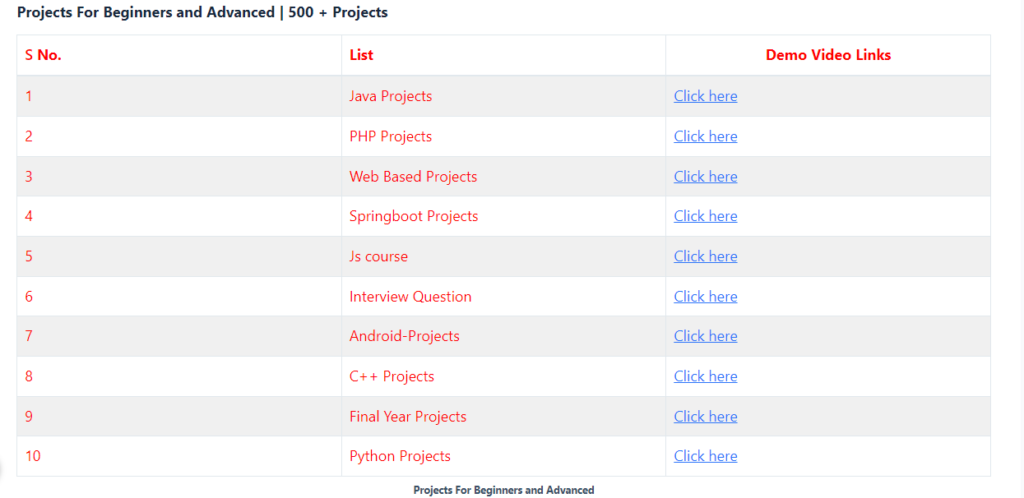Open Source Tools for College Projects
Introduction
In today’s digital age, open-source tools have become indispensable for students tackling college projects. They offer a plethora of benefits, from cost savings to enhanced learning opportunities. This blog post explores how students can effectively utilize these tools to excel in their academic endeavors.
Benefits of Open Source Tools
- Cost-Effective: Open-source tools are usually free, making them accessible to all students. This is particularly beneficial for those who might not have the budget to purchase expensive software licenses.
- Community Support: Many open-source tools have robust communities that offer support, tutorials, and forums. This can be invaluable when troubleshooting issues or seeking advice.
- Customization: Open-source software can often be customized to fit specific needs. This flexibility allows students to tailor tools to their project requirements.
- Learning Opportunities: Engaging with open-source projects provides hands-on experience with real-world software development practices, enhancing students’ skills and employability.

Essential Open Source Tools for College Projects
1. Version Control: Git and GitHub
Git is a distributed version control system that allows multiple people to work on the same project without overwriting each other’s work. GitHub, a platform built around Git, enables students to collaborate on projects, track changes, and manage their code effectively.
- How to Use: Students can start by creating a GitHub account and setting up repositories for their projects. They can use Git commands to clone, commit, push, and pull code.
2. Project Management: Trello and Kanban
Trello is a web-based project management tool that uses boards, lists, and cards to organize tasks. It is based on the Kanban methodology, which helps visualize work, limit work-in-progress, and maximize efficiency.
- How to Use: Students can create a Trello board for their project, with lists representing different stages of the project (e.g., To Do, In Progress, Done). Cards can be created for individual tasks and moved across lists as they progress.
3. Code Editors: Visual Studio Code
Visual Studio Code (VS Code) is a powerful and popular open-source code editor that supports multiple programming languages and has a wide range of extensions.
- How to Use: Students can download and install VS Code, then customize it with extensions for the languages and frameworks they are using. Features like IntelliSense, debugging, and Git integration can significantly enhance productivity.
4. Data Analysis: Jupyter Notebooks
Jupyter Notebooks are an open-source web application that allows students to create and share documents that contain live code, equations, visualizations, and narrative text.
- How to Use: Students can install Jupyter and use it for data cleaning, transformation, and visualization. It’s particularly useful for projects involving data science, machine learning, and statistical analysis.
5. Design and Prototyping: Figma
Figma is a collaborative interface design tool that is especially useful for UI/UX design projects. It allows multiple users to work on a design simultaneously.
- How to Use: Students can sign up for a free Figma account, create a new project, and start designing interfaces. They can invite team members to collaborate in real-time.
Best Practices for Using Open Source Tools
- Stay Organized: Use project management tools to keep track of tasks and deadlines. Break down projects into manageable parts and assign responsibilities if working in a team.
- Collaborate Effectively: Leverage version control systems to work collaboratively on code. Ensure everyone on the team understands how to use Git and GitHub to avoid conflicts.
- Document Everything: Maintain clear and comprehensive documentation. This includes comments in code, readme files, and project documentation. Good documentation makes it easier to understand and maintain projects.
- Engage with the Community: Don’t hesitate to seek help from the community. Participate in forums, join relevant groups, and contribute to open-source projects to build your skills and network.
Complete Python Course : Click here
Free Notes :- Click here
New Project :-https://www.youtube.com/@Decodeit2
How to setup this Project Complete video – Click here
Conclusion
Open-source tools offer a wealth of resources for college students working on projects. By leveraging these tools, students can enhance their productivity, collaboration, and learning experiences. Whether it’s through version control with Git, project management with Trello, coding with VS Code, data analysis with Jupyter, or design with Figma, open-source tools are invaluable assets in a student’s toolkit.
- tools for college projects
- tools for college
- tools for college projects students
- tools for college success
- tools for collage
- project management tools for students
- ai tools for college project
- information technology projects for college students
- types of projects for college projects students
- easy art projects for college projects students
- projects that look good on college applications
- tools for college success class
🎓 Need Complete Final Year Project?
Get Source Code + Report + PPT + Viva Questions (Instant Access)
🛒 Visit UpdateGadh Store →